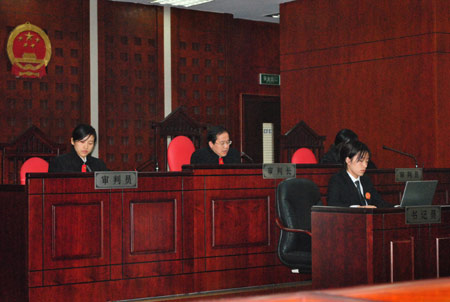China orders court hearings for parole cases
 0 Comment(s)
0 Comment(s) Print
Print E-mail Xinhua, February 23, 2012
E-mail Xinhua, February 23, 2012
China's Supreme People's Court (SPC) has stipulated that court hearings must be held for certain types of commuting and parole cases in order to improve judiciary transparency.
|
 |
|
A court hearing [file photo] |
According to a judicial document released Wednesday by the SPC, court hearings should be held for six types of commuting and parole cases, including those that involve objections from procuratorates or the public, as well as those deemed necessary by the people's courts.
The move will reverse the long-term practice of reviewing such cases on the basis of documents only.
"Court hearings will help relieve concerns regarding possible under-the-table deals during case reviews and will allow authorities to consider opinions from different sides," the document said.
The SPC said it is currently impossible to conduct court hearings for all commuting and parole cases, given the fact that the number of cases far outweighs the number of court personnel. The six types of cases were selected for their relevance to public concerns and complexity in judicial practice.
The decision, based on research and opinions collected since 2009, aims to "establish an open system for the hearing of commuting and parole cases" and will take effect on July 1, the document said.





